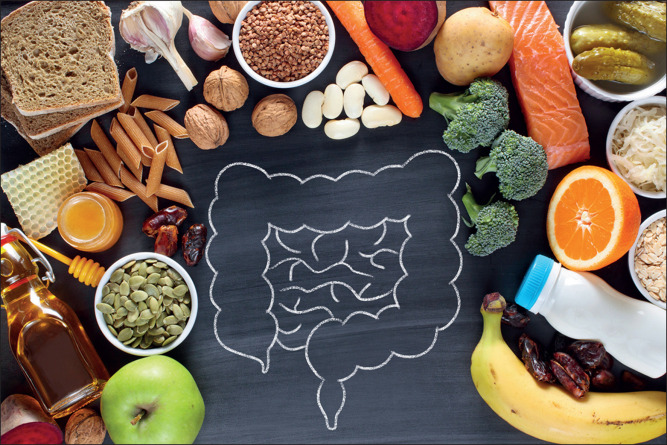Crohn’s disease is a chronic inflammatory bowel disease (IBD) that affects the digestive tract, leading to symptoms such as abdominal pain, diarrhea, fatigue, and unintended weight loss. While no single diet can cure Crohn’s disease, following a Crohn’s disease diet plan can help manage flare-ups, reduce inflammation, and promote gut healing. This article provides a comprehensive guide to foods to eat, foods to avoid, and dietary strategies that support individuals living with Crohn’s disease.
Understanding the Role of Diet in Crohn’s Disease:
Crohn’s disease causes inflammation anywhere in the digestive tract, from the mouth to the anus, but most commonly affects the small intestine. Since digestion is impaired, nutrient absorption may be reduced. Certain foods can worsen symptoms during flare-ups, while others may be well-tolerated during remission.
A Crohn’s disease-friendly diet focuses on:
- Reducing irritation in the digestive tract
- Preventing nutrient deficiencies
- Promoting healing and energy balance
- Supporting long-term gut health
Foods to Eat on a Crohn’s Disease Diet:
- Fruits (low-fiber, soft, or cooked): bananas, melons, papaya, applesauce, peeled pears
- Vegetables (cooked/steamed): carrots, zucchini, squash, potatoes (without skin), spinach (cooked)
- Grains (low-fiber/refined): white rice, white bread, plain pasta, low-fiber cereals, well-cooked oatmeal
- Proteins (lean & easy to digest): skinless chicken, turkey, fish (baked/grilled), eggs, tofu, smooth nut butters
- Dairy & alternatives (if tolerated): lactose-free milk, almond/soy/oat milk, low-fat yogurt, hard cheese
- Healthy fats: olive oil, avocado (small amounts), flaxseed oil, omega-3-rich fish like salmon
- Snacks & extras: rice cakes, plain crackers, herbal teas (chamomile, ginger), bone broth
Foods to Avoid on a Crohn’s Disease Diet:
- High-fiber raw vegetables: broccoli, cauliflower, cabbage, corn, raw spinach
- Legumes & beans: lentils, chickpeas, kidney beans (cause gas/bloating)
- Fried & greasy foods: burgers, French fries, fried chicken, fast foods
- Dairy (if lactose intolerant): whole milk, cream sauces, soft cheeses
- Spicy foods: hot peppers, chili, strong curries, hot sauces
- Caffeine & alcohol: coffee, energy drinks, soda, beer, wine, liquor
- Nuts & seeds (whole): almonds, peanuts, sunflower seeds, sesame seeds
- Foods with small seeds: tomatoes, strawberries, raspberries (may irritate gut lining)
Crohn’s Disease Diet Tips:
- Eat smaller, frequent meals: This reduces strain on the digestive system.
- Stay hydrated: Drink plenty of water, especially if diarrhea is frequent.
- Limit high-fat foods: Fatty meals can worsen diarrhea and cramping.
- Keep a food journal: Track what foods trigger flare-ups for personalized control.
- Consider supplements: Vitamin B12, iron, calcium, and vitamin D may be necessary if absorption is poor.
- During flare-ups: Switch to a low-residue diet (low fiber) to ease symptoms.
- Work with a dietitian: Personalized plans are best for long-term management.
Sample Crohn’s Disease-Friendly Meal Plan:
Here’s a sample Crohn’s Disease Diet meal plan designed to be gentle on the digestive system, prevent flare-ups, and maintain good nutrition. It focuses on easily digestible foods, low fiber (during flare-ups), and balanced nutrition.
| Meal Time | Food Options | |
|---|---|---|
| Breakfast |
| |
| Mid-Morning Snack |
| |
| Lunch |
| |
| Afternoon Snack |
| |
| Dinner |
| |
Benefits of a Crohn’s Disease Diet:
A Crohn’s disease diet is not a cure, but it plays a vital role in managing symptoms, reducing flare-ups, and improving overall digestive health. By identifying trigger foods and focusing on nutrient-rich, gut-friendly options, people living with Crohn’s can experience significant benefits.
Reduces Flare-Ups and Symptoms:
Avoiding trigger foods like fried, spicy, and high-fiber raw vegetables helps minimize common Crohn’s symptoms such as abdominal pain, diarrhea, gas, and bloating. A tailored diet can keep flare-ups less frequent and less severe.
Supports Gut Healing:
Easily digestible foods such as cooked vegetables, lean proteins, and low-fiber grains allow the digestive tract to rest and heal, especially during flare-ups. This reduces irritation and inflammation.
Prevents Nutrient Deficiencies:
Crohn’s disease often interferes with nutrient absorption, leading to deficiencies in iron, vitamin B12, calcium, and vitamin D. A Crohn’s-friendly diet emphasizes nutrient-dense foods and, when needed, supplements to maintain optimal nutrition.
Improves Energy Levels:
By balancing carbohydrates, proteins, and healthy fats, the diet provides consistent energy, helping to combat fatigue—a common problem in Crohn’s patients.
Promotes Healthy Weight Maintenance:
Unintended weight loss is common in Crohn’s disease due to poor absorption and frequent diarrhea. A well-planned diet ensures adequate calorie and protein intake, preventing malnutrition and underweight issues.
Enhances Quality of Life:
When symptoms are under control, individuals can enjoy better sleep, improved social interactions, and reduced anxiety about food-related discomfort. This contributes to overall well-being.
Reduces Dependence on Medications:
While medication is often necessary, a Crohn’s disease diet can help manage symptoms naturally, potentially lowering the need for high doses or long-term reliance on certain drugs.
Conclusion:
Although there is no one-size-fits-all diet for Crohn’s disease, adopting a personalized Crohn’s disease diet plan can significantly improve symptom management and quality of life. By focusing on well-tolerated, nutrient-rich foods and avoiding known triggers, individuals can reduce flare-ups, protect their digestive system, and support long-term gut health.
